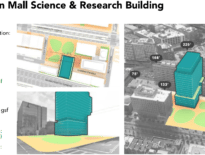Investors are getting out of the housing market even faster than buyers can be pushed out by rising interest rates, according to a new Redfin study.
The number of homes purchased by investors nation-wide fell 30.2 percent year-over-year in the third quarter, economists at the combined brokerage and listings portal said, compared to a 27.4 percent drop in the total number of home purchases nation-wide. Quarter-over-quarter, investor home purchases fell 26.1 percent compared to a 17.4 percent drop in the overall number of sales.
The decline, Redfin researchers said, was the largest since the second quarter of 2020 when the pandemic’s onset sent investor activity tumbling.
The drop sent investor market share falling, too. Investors bought 17.5 percent of all homes bought in the third quarter, compared to 19.5 percent in the second quarter and 18.2 percent a year earlier. Still, that’s higher than their pre-pandemic share of 15 percent.
“It’s unlikely that investors will return to the market in a big way anytime soon. Home prices would need to fall significantly for that to happen,” Redfin Senior Economist Sheharyar Bokhari said in a statement. “This means that regular buyers who are still in the market are no longer facing fierce competition from hordes of cash-rich investors like they were last year.”
Neither Boston, Worcester nor Springfield made the list of housing markets seeing big drops in investor activity, but that may be due to the already-low levels. A study from the National Association of Realtors released this summer, using 2021 sales data, showed only 7 percent of all residential properties were sold to an investor (defined in the study as an LLC or a trust) in 2021, with the highest concentrations occurring on Martha’s Vineyard (15 percent), Nantucket (13 percent) and Suffolk County (12 percent), where wealthy homebuyers often use trusts and LLCs to achieve a degree of anonymity and tax protections for themselves. Institutional investors made up only 8 percent of buyers in Berkshire and Hampden counties; 7 percent in Barnstable and Middlesex counties; 6 percent in Bristol, Franklin, Hampshire and Worcester counties; and 5 percent in Essex, Norfolk and Plymouth counties, NAR’s economists reported.
The markets driving the downturn Redfin researchers observed were led by iBuyer hotspot Phoenix, where investor purchases cratered 49.4 percent year-over-year, followed by Portland, Oregon (-47.4 percent ), Las Vegas (-44.8 percent), Sacramento, California (-43.2 percent) and Atlanta (-42.2 percent). Each market experienced a larger-than-typical boom in home sales during the pandemic thanks to in-migration from other parts of the country.
“The housing markets that investors are backing out of fastest are those that rose rapidly during the pandemic and are now falling rapidly,” Bokhari said. “That volatility creates a lot of uncertainty, which raises the risk of investors losing money.”
Investor home purchases only increased in five of the metros Redfin analyzed. They jumped 46.4 percent year over year in Philadelphia, 11.2 percent in New York City, 8 percent in Baltimore, 5 percent in Cleveland and less than 1 percent in Newark, New Jersey. Baltimore and Cleveland are among the nation’s most durable housing markets, currently.




 |
| 


